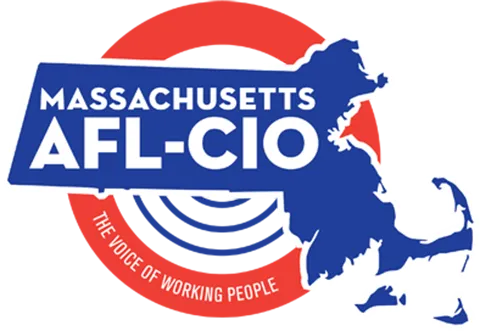
Stop Wage Theft
An Act to prevent wage theft, promote employer accountability, and enhance public enforcement - H.1868 - S.1158

Protects workers from common wage theft violations such as failure to pay wages, failure to pay at least the minimum wage, and failure to abide by overtime laws
Protects workers from independent contractor misclassification, ensuring workers are able to receive the benefits they are entitled to
Protects workers against retaliation from their employer for reporting violations, and increases the power of the Attorney General's office to enforce wage theft laws
Nearly $700 million in wages are stolen from about 350,000 low-wage workers each year in
Massachusetts.
Wage theft covers a variety of infractions that occur when workers do not receive their legally required or promised wages. Common forms of wage theft are:
- Non-payment of overtime
- Not giving workers their last paycheck after a worker leaves a job
- Not paying for all the hours worked
In today’s economy, where employers increasingly subcontract or outsource core parts of their business to other companies, wage theft has overwhelmed the capacity of our existing labor laws and enforcement mechanics.
This bill would:
- Increase Responsibility: Holds “lead contractors” accountable for the wage theft violations of their
subcontractors. - Protects Wage Rights: Protects workers from wage theft violations such as failure to make wage payments; failure to abide by minimum wage, prevailing wage and overtime laws; and independent contractor misclassification.
- Protect Workers against retaliation for reporting wage violations.
- Improve Government Enforcement: Streamlines the enforcement power of the Attorney General’s office by allowing it to bring wage theft cases directly to court and seek damages on behalf of workers.
- Allow a Stop Work Order: In cases where there has been a determination of a wage theft violation, the AG will have the power to issue a “Stop Work Order,” which temporarily halts work until the violation is corrected.
Please enter your address so we can help you contact your legislator.
the decision makers
Joint Committee on Labor and Workforce Development
Who on committee has co-sponsored:
state senators:
Who has co-sponsored:
History of the bill
Dec 2024
No further action taken by Committee on Labor and Workforce Development
Jan 2023
Bill re-filed as H.1868/S.1158
Sep 2023
Joint committee hearing held
Jan 2023
No further action taken by House Ways and Means
Feb 2023
Referred to the Joint Committee on Labor and Workforce Development
Feb 2022
Reporting date extended to April 4th, 2022
Apr 2022
Redrafted as H.4681, reported favorably by committee, referred to House Ways & Means
Jun 2021
Hearing held by Labor and Workforce Development Committee
Jun 2021
Hearing held by the Labor and Workforce Development Committee
Mar 2021
Referred to the Committee Labor and Workforce Development
Jan 2021
Bill re-filed as H.1959
Oct 2020
Reported favorably and referred to House Ways & Means
May 2019
Hearing held
Jan 2019
Sent to Labor committee
Jul 2018
Bill dies without any action in House Ways & Means
Jun 2018
Passed by Senate unanimously, 38-0
Jun 2018
Favorable Report by Senate Ways & Means
Mar 2018
Favorably reported by Labor committee, sent to Senate Ways & Means
Jan 2017
H.1033 (previous version) sent to Labor committee
Jul 2016
Passed the Senate 38-2
Apr 2016
Favorable report by Labor committee, sent to Senate Ways & Means
Jul 2016
Dies in House Ways & Means committeee after no action
Jul 2016
Favorable report by Senate Ways & Means
Sep 2015
Hearing in Labor committee
Jan 2015
Filed as H.1748



















